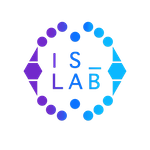N. V. Gkalinikis and D. Vrakas, "Efficient Deep Learning Techniques for Water Disaggregation," 2022 2nd International Conference on Energy Transition in the Mediterranean Area (SyNERGY MED), Thessaloniki, Greece, 2022, pp. 1-6, doi: 10.1109/SyNERGYMED55767.2022.9941424.
Author(s): Nikolaos Virtsionis Gkalinikis and Dimitris Vrakas
Keywords: water disaggregation, non intrusive load monitoring, artificial neural networks, knowledge transfer, transfer learning
Tags:
Abstract: The goal of water disaggregation is to specify the consumption of the individual water fixtures using only the aggregate consumption measurements of a single house meter. This task belongs to the family of blind source separation methods, where neural networks are proven to excel. Despite that recent breakthroughs in Internet of Things (IoT) led to the development of meters able to measure consumption in frequency higher than 1 point per month or day, the use of deep learning in this domain is infeasible due to the lack of publicly available data sets. To overcome these challenges a set of deep learning techniques is introduced to achieve great results in cases where limited data is available. In addition, the method of domain knowledge transfer is explored in an effort to take advantage of models that were previously trained in energy data as feature extractors to address the water separation problem.
